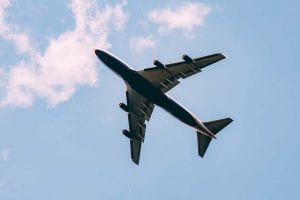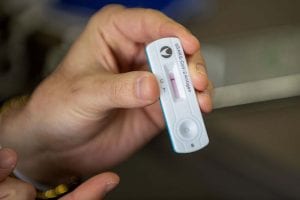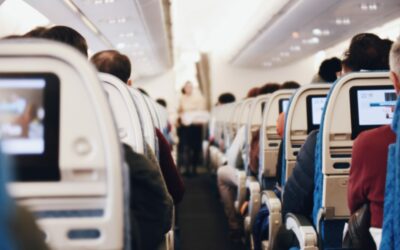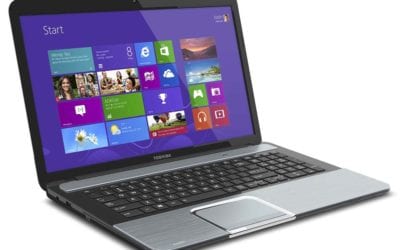No one knows if COVID testing will change the virus playing field
 During the last two months, we have heard of the approval of anti-COVID-19 vaccines. But there still are no accurate tests that can tell medical professionals if someone has COVID-19 in the early stages. Since the disease is contagious before symptoms are felt or seen, no testing can guarantee whether or not a person is contagious.
During the last two months, we have heard of the approval of anti-COVID-19 vaccines. But there still are no accurate tests that can tell medical professionals if someone has COVID-19 in the early stages. Since the disease is contagious before symptoms are felt or seen, no testing can guarantee whether or not a person is contagious.
This lack of good testing has created a major problem for travelers. False positives and false negatives range from 10 to 30 percent, with an average of around 12 percent. That means testing is not accurate enough to guarantee that it is safe to travel or be in close contact with anyone. This applies to planes, cruise ships, and any form of travel, dining, or meeting.
The travel industry is dealing with a stealth virus that changes how it attacks humans. Plus, the virus does not develop symptoms until it has been contagious for four to five days. Plus, any semi-accurate testing takes another 24-48 hours to show any results.
Basically, when a person is sick with COVID-19 they do not know until almost a week after contracting the virus. And, these people are contagious during that period spreading the disease.
COVID testing has failed on cruise ships
 Anyone who has attempted to book a cruise knows that the industry is faced with a “No Sail” mandate. This entire industry with departures from US ports has been stopped. A few ships are sailing from Caribbean islands and from some Far Eastern ports. However, these departures have not been virus-free.
Anyone who has attempted to book a cruise knows that the industry is faced with a “No Sail” mandate. This entire industry with departures from US ports has been stopped. A few ships are sailing from Caribbean islands and from some Far Eastern ports. However, these departures have not been virus-free.
Sailings leaving from Caribbean islands have subjected passengers to testing three to five days prior to departure and again on the day of departure. The results have consistently resulted in early returns to the home port because of COVID-19 infections. This is even after careful testing, The accuracy is not adequate.
Whenever passengers have been placed on cruise ships, they have also been subjected to virus exposure. It seems that there has not been a testing regime that provides clear and accurate results. Whenever passengers are kept on board cruise ships, in close quarters, the virus manages to escape detection. Passengers eventually get sick.
Air travel COVID testing is complex and does not have accurate testing, either
As I am writing this post, airlines are struggling to create a viable testing protocol for air travel. Already there are four venues for testing. Flights to Hawaii require testing. A route from Newark airport to London, England, uses a COVID-19 testing system. Atlanta has COVID-free flights (theoretically) to Amsterdam. And, a separate flight from Atlanta to Rome is using a series of tests to attempt virus-free travel.
There is a problem, however. These four destinations all have different testing protocols. No airline or airport can work with separate tests for each city in the world. It is unworkable. The aviation industry is looking for a worldwide standard for coronavirus testing.
READ ALSO:
Why cruise line safety by testing alone is impossible
Is there a future for cruising after the coronavirus?
The cruise industry shows COVID spread after at least a day at sea — airline tests cannot be any better

Using available data means airlines that are attempting to claim COVID-free flights are more than likely participating in a hoax. Testing is not available to make that kind of guarantee.
The airline industry is trying to have the Centers for Disease Control develop a national and then an international standard for testing. But, the testing is still not capable of guaranteeing such results. With no workable federal or international standards, no airline can make a blanket claim about contagion in planes.
Airlines and cruise ships need a new protocol for handling contagious passengers
Travelers United has written to the top staffers on the House Transportation and Infrastructure Committee and on the Senate Commerce Committee. However, legislation passed by Congress has focused on unemployment insurance and on direct payments to taxpayers. There is no money or direction provided to stop the spread of disease aboard planes.
COVID-19 has the industry’s attention. However, other contagious diseases should be kept from packed travel conditions. Travelers with tuberculous or pneumonia should not be forced to pay extra to change their flights. The current system is simply reckless.

Charlie Leocha is the President of Travelers United. He has been working in Washington, DC, for the past 14 years with Congress, the Department of Transportation, and industry stakeholders on travel issues. He was the first consumer representative to the Advisory Committee for Aviation Consumer Protections appointed by the Secretary of Transportation from 2012 through 2018.



